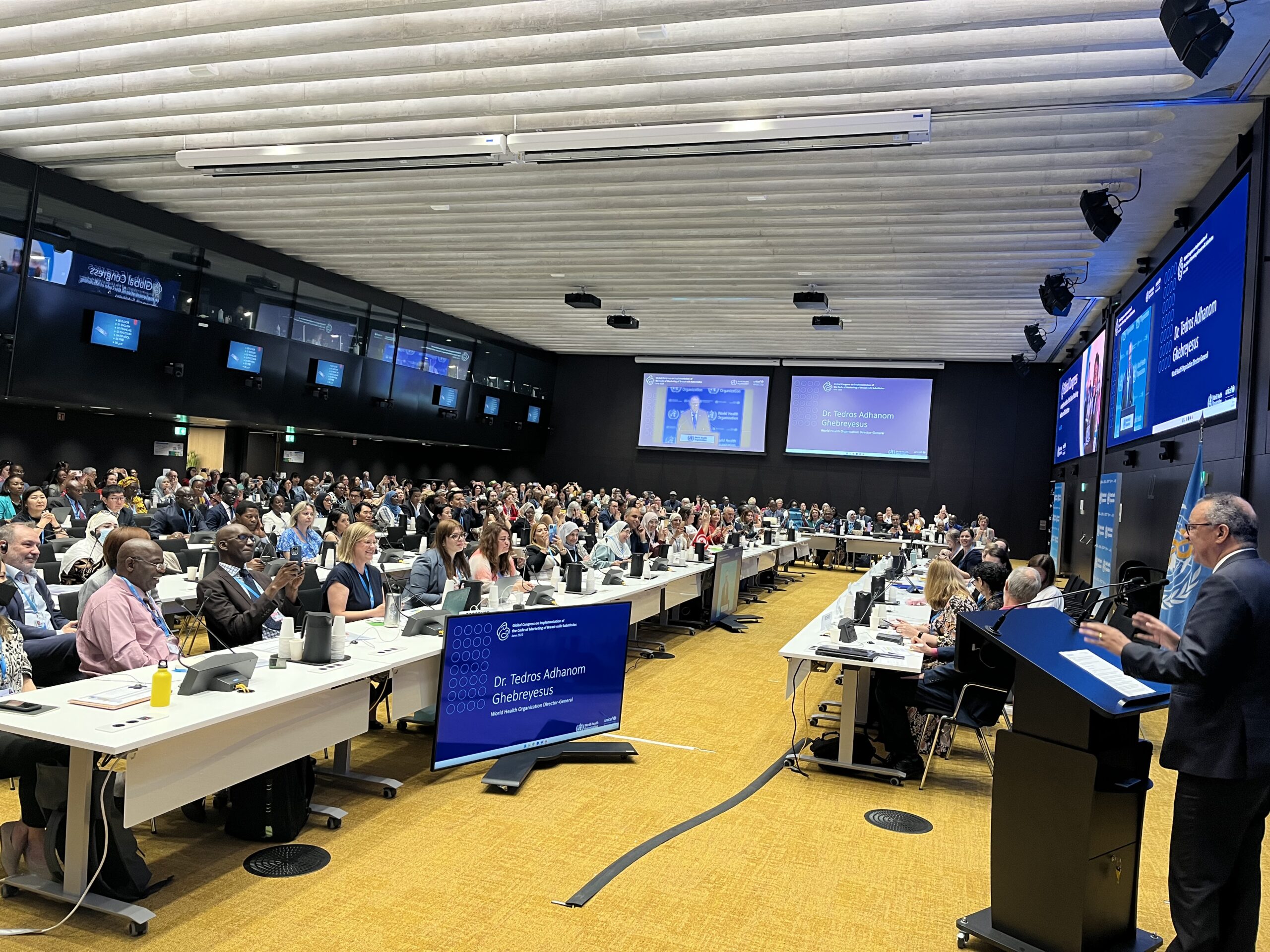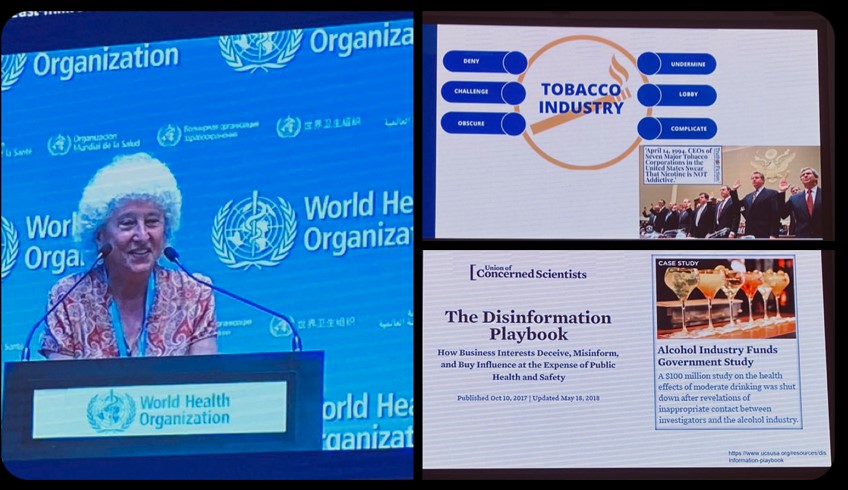I’m on the visionary panel. To register, click here.

Last week, I attended and spoke at the UNICEF-WHO Global Congress on Implementation of the International Code of Marketing of Breast-Milk Substitutes at WHO headquarters in Geneva.
The meeting was attended by more than 400 government, health, and advocacy representatives from more than 100 countries. Representatives of infant formula companies were not invited to participate.

Its purpose was to encourage governments to promote and enforce the International Code, which nearly all U.N. member states ratified and committed to in 1981 (the U.S. was a long-standing holdout).
This meant they would control inappropriate marketing of infant formulas by banning advertising to people who are pregnant or nursing, gifts of formula samples, and doing anything to make formula appear superior to breastfeeding.
The logic of the Congress:
I talked about the food industry “playbook”—strategies and tactics used by industries (tobacco, chemical, drug, alcohol, and food as well as infant formula) to cast doubt on unfavorable research, fund their own research, and lobby against public health recommendations (photo: Arum Gupta).

Many country representatives discussed the effects of the playbook in their areas, and what they are trying to do to stop formula companies from using the playbook to get around the Code.
The general consensus: Formula companies should NOT be allowed to:
Obviously, formula companies are not happy with such recommendations. If you would like to see an example of the playbook in action, take a look at the response from the International Special Dietary Foods Industries.
It was exciting to be with so many people who cared so deeply about this issue.
Resources